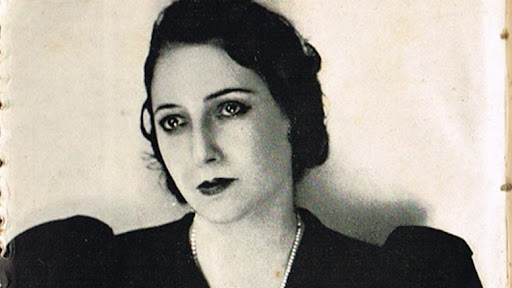RIO DE JANEIRO, BRAZIL – In a historic ceremony that gathered in the Legislative Palace of Montevideo great figures of Ibero-American letters, the Uruguayan poet Juana de Ibarbourou – known as “Juana de América” – re-entered the enclosure with a commemorative portrait 92 years after the first tribute.
Uruguay’s vice-president Beatriz Argimón, together with painter Osvaldo Leite and writer Sylvia Puentes, unveiled the self-portrait that the artist painted to donate to the Library of the Legislative Palace.

This was emphasized Tuesday, August 10 – on the anniversary of the honor ceremony, which took place on August 10, 1929, in the Salón de Los Pasos Perdidos of the Uruguayan Parliament – by the president of the General Assembly, Beatriz Argimón, who said that De Ibarbourou (1892-1979) “is still alive” in her famous works.
“Juana’s generation had to do with that look in literature that distinguishes us in Latin America and the world. Her work is already being studied in the universities of the world and, hopefully, with increasing strength, we will vindicate Juana’s literature,” said the Uruguayan vice-president.
Argimón, who unveiled together with painter Osvaldo Leite and writer Sylvia Puentes the portrait that the artist painted to donate to the Library of the Legislative Palace, pointed out that it is the second painting of an illustrious woman exhibited in the historical precinct, after that of politician and jurist Adela Reta, and asked to vindicate the valuable contribution of women to Uruguayan culture.
For her part, Puentes, who forged a friendship with De Ibarbourou in her adolescence, recalled, in the words of the author of titles such as “Las lenguas de diamante”, “Raíz Salvaje” or “Chico Carlo”, the importance of the recognition of 1929, where she was honored, among others, by the Mexican poet Alberto Reyes and the Peruvian José Santos Chocano.
“She barely says a few words. She says: ‘This day invites me to the commitment of renewing my forces that were slackening, and I have to return to writing,” Puentes said, adding that the poet, who had several “setbacks” in her life, began to live a new stage of creation.
Puentes, who praised the way the painter portrayed her hands for the tribute, said that he always found in De Ibarbourou “great serenity and tenderness” and that it is seen how people appreciate her work her figure.
“The people loved Juana because she had a polysemic language but not obscure, not abstract. She said the most beautiful and unheard things most simply,” she concluded.

